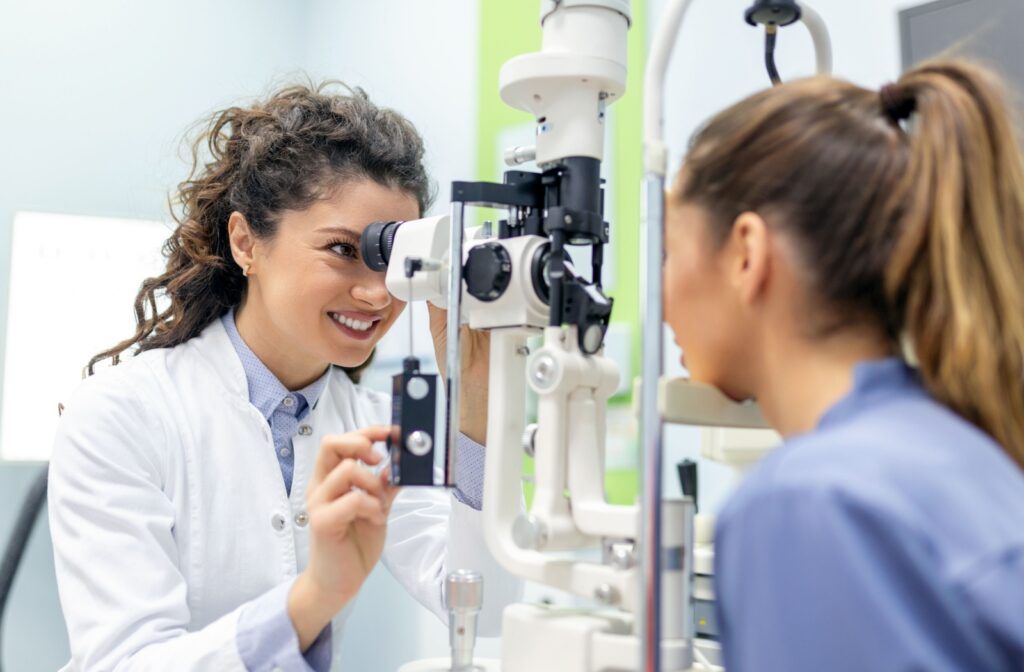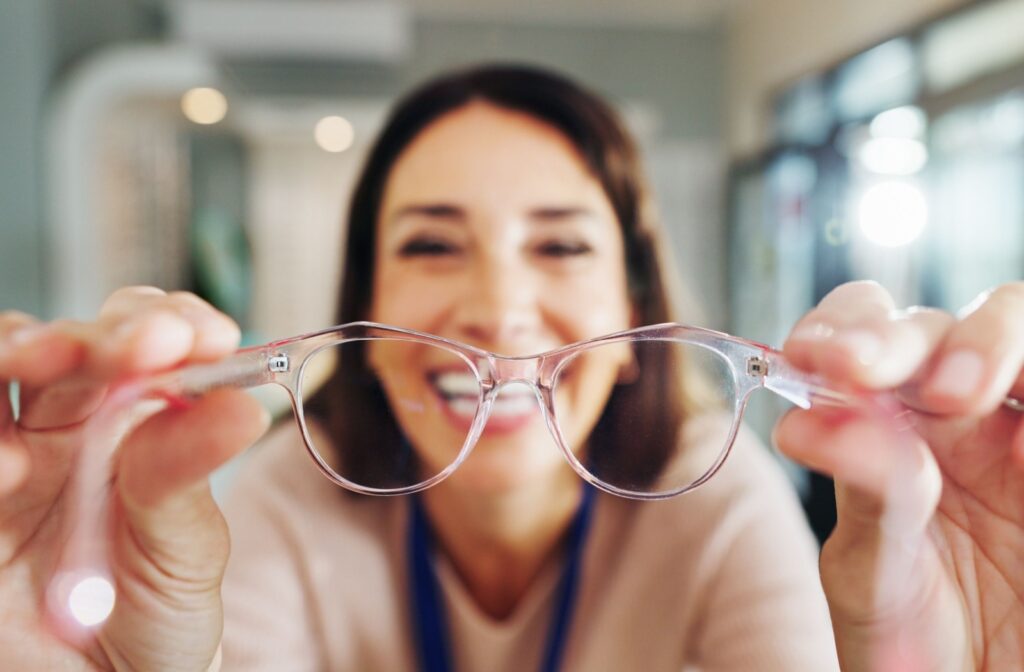It’s common to hear people say that their eyes have gotten worse since they started wearing glasses. This concern often raises the question: can glasses actually cause eyesight to deteriorate?
The answer is no, wearing glasses does not make your eyes worse. Instead, your glasses prescription changes are your vision changes over time. In this blog, we’ll look at why eyesight may seem to decline, what really drives changes in vision, and how glasses fit into the bigger picture of eye health.
Understanding the Concern
Many people worry that their eyes are becoming dependent on their glasses. It can feel as though the longer you wear glasses, the more you “need” them or the stronger your prescription becomes. This creates the impression that your lenses are somehow weakening your eyes.
However, it’s important to distinguish between correlation and causation. Your eyes change naturally as you age, and glasses don’t accelerate these changes; they simply make them easier to notice. When you become accustomed to clear vision with glasses, you may be more aware of how blurry things look when you take them off.
Vision Changes Over Time
Vision naturally changes with age and other factors. For example, children and teenagers often experience shifts in myopia as their eyes continue to grow. Adults may encounter different changes, such as presbyopia, a difficulty with close-up vision that typically begins in the 40s due to loss of flexibility in the lenses of the eyes.
Cataracts, changes to the cornea, or other age-related conditions can also alter visual clarity. These developments are part of how the eye evolves, not a result of corrective eyewear. Your optometrist responds to these changes by adjusting your prescription to these changes, allowing you to continue to have clear vision.
Glasses as a Response, Not a Cause
The purpose of glasses is to correct refractive errors by adjusting the way that light enters the eye. Glasses don’t train or weaken the eyes, and because they sit in front of your face, they don’t interact with the eye directly. They only make your vision clearer.
However, because taking off your glasses makes you more aware of the difference between your corrected and uncorrected vision, people often mistakenly assume that their glasses are actually making their vision worse. This couldn’t be further from the truth!
Contribution of Habits and Lifestyle
While glasses don’t make your vision worse, certain lifestyle habits absolutely do. Your daily habits and environment influence your eye comfort more than whether or not you wear glasses.
Digital screen use & close work
In today’s digital world, extended use of phones, tablets, and computers contributes to eye strain. Prolonged near work can increase fatigue and, in some cases, contribute to the progression of myopia. Research shows children who spend significant time on screens are nearly 30% more likely to develop nearsightedness, with the risk increasing further when combined with computer use.
Dry eyes & tear quality
The health of the tear film also plays a role in vision. Dry eye disease, which is linked to problems with the meibomian glands, can cause fluctuating or blurry sight. This is particularly noticeable during long periods of concentration, such as reading or working on a computer.
Astigmatism progression
Astigmatism may worsen for structural or lifestyle-related reasons, including eye injuries or aging. Again, the use of glasses doesn’t cause this change. On the contrary, wearing the right prescription helps you manage its effects more comfortably.
When Glasses May Feel Like a Problem
There are times when glasses can feel unhelpful, but this usually points to an outdated or incorrect prescription. Wearing lenses that no longer meet your visual needs can lead to headaches, fatigue, or a sense that your eyes are straining. In these situations, it might feel as though glasses are making things worse. However, you likely just need an updated prescription.
For people who avoid wearing their glasses regularly, the adjustment to a new pair of lenses can also feel uncomfortable. Transitioning between blurred and corrected vision highlights the difference between them, which may create the false impression that glasses themselves are causing dependence.
Promoting Eye Comfort & Visual Health

While glasses correct existing refractive errors, maintaining healthy vision involves more than prescription lenses. There are steps you can take to reduce strain and support long-term eye comfort:
- Taking regular breaks from screens to allow the eyes to relax
- Scheduling routine eye exams to track vision changes and update prescriptions
- Reducing glare and managing lighting in workspaces to ease strain
- Treating dry eye symptoms early, which may involve supporting meibomian gland health
These habits don’t stop natural changes in vision, but they can make daily tasks more comfortable and help you feel less dependent on glasses.
A Clearer Perspective
If you’ve ever felt like your vision worsened because of your eyeglasses, it’s important to know that change happens independently of corrective lenses. Glasses are a response to evolving eyesight, not the cause of it. Supporting your vision with healthy habits, being mindful of screen use, and keeping prescriptions up to date can all make a difference in how comfortable and clear your sight feels. For tailored advice and care, don’t hesitate to book an appointment with us at Doctors EyeCare Grande Prairie.




